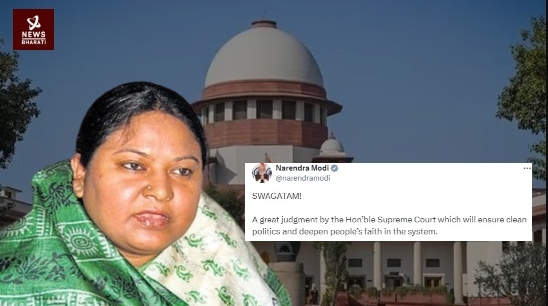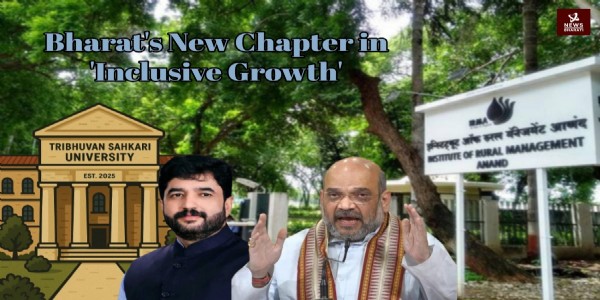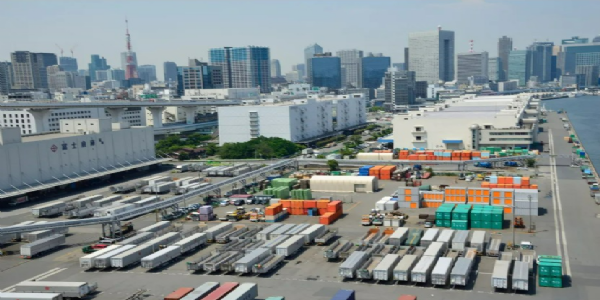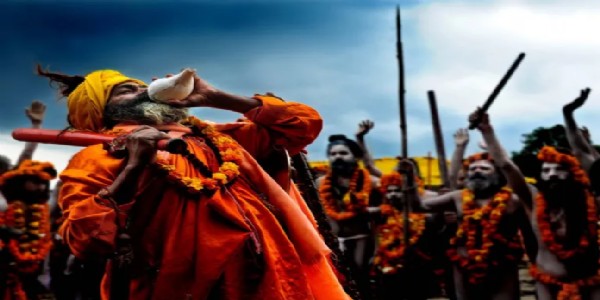LANDMARK JUDGEMENT! Supreme Court says MPs, MLAs can't claim immunity for bribery; PM Modi reacts
Total Views | 108
New Delhi, Mar 4: In a landmark judgment, the Supreme Court of India asserted that Members of Parliament (MPs) and Members of Legislative Assemblies (MLAs) do not enjoy immunity from prosecution for accepting bribes in exchange for making a speech or casting a vote in the legislature. This will help to uphold the integrity of the political system and foster public trust in the democratic process.

Prime Minister Narendra Modi expressed his approval of the decision through a post on X, stating,
"SWAGATAM! A great judgment by the Hon’ble Supreme Court which will ensure clean politics and deepen people’s faith in the system."
SWAGATAM!
— Narendra Modi (@narendramodi) March 4, 2024
A great judgment by the Hon’ble Supreme Court which will ensure clean politics and deepen people’s faith in the system.https://t.co/GqfP3PMxqz
A seven-judge constitution bench headed by Chief Justice DY Chandrachud unanimously overruled the 1998 verdict delivered by a five-judge bench in the JMM bribery case by which MPs and MLAs were granted immunity from prosecution for taking bribes to make a speech or vote in the legislature.
Chief Justice Chandrachud, pronouncing the current verdict, emphasized that bribery is not protected by parliamentary privileges. He further highlighted that the interpretation of the 1998 judgment was contrary to the provisions of Articles 105 and 194 of the Constitution. Articles 105 and 194 delineate the powers and privileges of MPs and MLAs in the Indian Parliament and legislative assemblies, respectively.
Also Read: NB Explains | Supreme Court invalidates Electoral Bonds Scheme terming it as 'unconstitutional'
The Chief Justice underscored that bribery erodes probity in public life and, therefore, should not be shielded under the constitutional articles governing the privileges of elected representatives.
Narasimha Rao versus CBI case 1998 verdict
In 1998, a five-judge constitution bench held in its majority verdict on the Narasimha Rao versus CBI case that parliamentarians have immunity against criminal prosecution for any speech made and vote cast inside the House under Articles 105(2) and 194(2).
But how did this 1998 verdict come under SC's lens?
The issue came under the Supreme Court's lens in 2019, when a bench headed by then Chief Justice Ranjan Gogoi was hearing an appeal filed by Sita Soren, JMM MLA from Jama and daughter-in-law of party chief Shibu Soren. She was an accused in the JMM bribery scandal. The Gogoi-led bench had referred to a five-judge bench the matter, noting it had "wide ramification" and was of "substantial public importance".
Sita Soren was accused of taking bribes to vote for a particular candidate in the Rajya Sabha election in 2012. She contended that the constitutional provision granting lawmakers immunity from prosecution, which saw her father-in-law being let off the hook in the JMM bribery scandal, be applied to her.
She moved the apex court against the Jharkhand High Court order of February 17, 2014, refusing to quash the criminal case lodged against her.
Also Read: Satyameva Jayate! Supreme Court rejects SIT probe into Adani-Hindenburg row, Gautam Adani reacts-
The three-judge bench had then said it would revisit the apex court verdict in the JMM bribery case involving Shibu Soren, a former Jharkhand chief minister, and ex-union minister, and four other party MPs who had accepted bribes to vote against the no-confidence motion threatening the survival of the P V Narasimha Rao government in 1993. The Narasimha Rao government, which was in a minority, survived the no-confidence vote with their support. The CBI registered a case against Soren and four other JMM Lok Sabha MPs but the Supreme Court quashed it citing immunity from prosecution they enjoyed under Article 105(2) of the Constitution.
Notably, the seven-judge bench had reserved its judgment in the matter on October 5 last year. During the arguments, the Centre had submitted that bribery can never be a subject matter of immunity and a parliamentary privilege is not meant to place a lawmaker above law.
The Supreme Court, in the course of the hearing, had said it would examine whether the immunity granted to lawmakers from prosecution for taking bribes to make a speech or vote in Parliament and state legislatures extends to them even if criminality is attached to their actions.
Now, the justice prevailed!
Bharati Web







